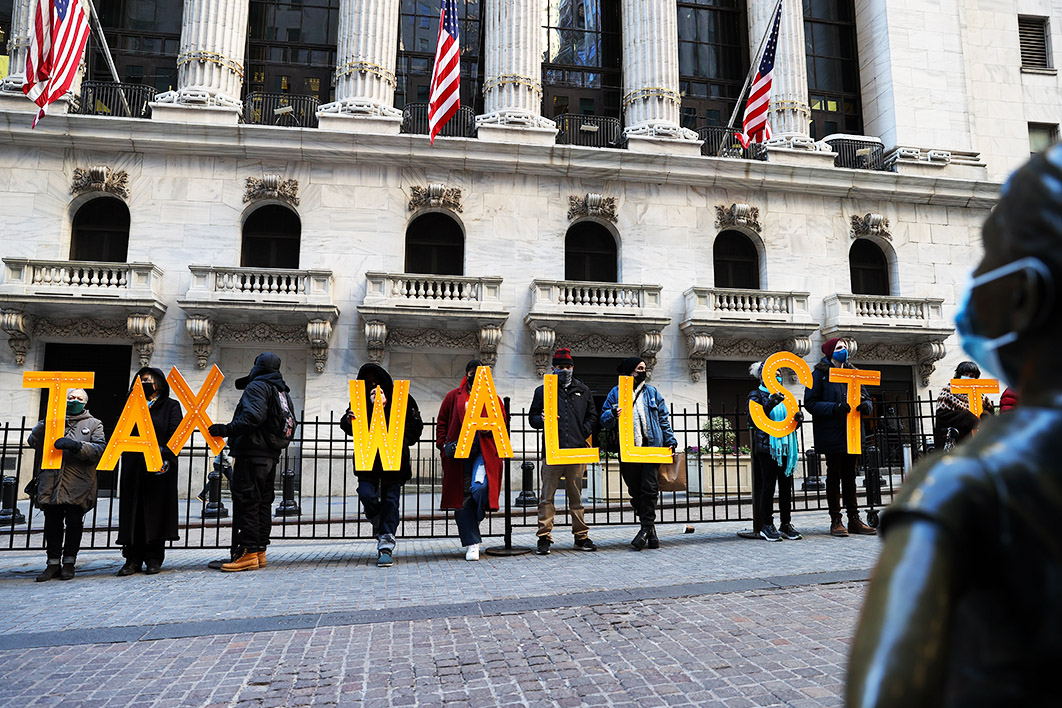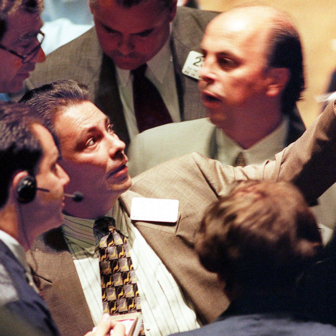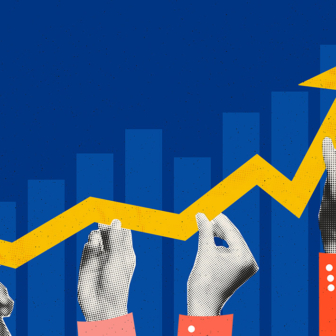Every few years, an audacious stock market play makes the leap from the business section to the front page. January’s “short squeeze” involving the New York Stock Exchange–listed company GameStop Corp. — instigated and propelled by social media site Reddit and supercharged by trading platforms like Robinhood — did just that. But what, if anything, does it mean for financial markets, including in Australia and, more importantly, how might we think about regulating this kind of activity?
At its heart, a short squeeze is a simple play. A trader — say, a Wall Street hedge fund — decides that the value of a listed security is likely to fall in future. They “short” the security — that is, they borrow securities and sell them at the current market price. The plan bets on the fact that the price will fall before the borrowed shares must be returned and the trader can buy enough at the lower price to settle the trades. The risk is that the trader will be unable to find sufficient securities in the market or that the price will rise rather than fall. The squeeze comes on when other traders — say, retail day traders communicating through Reddit and other social media sites — decide to take the price of the security up instead, squeezing the shorts into significant loss.
In that sense the GameStop squeeze is nothing new. But it occurred at a time when securities regulators globally are increasingly concerned about the effect of new technology and new patterns of retail investor involvement in securities markets amid the turmoil of Covid-19.
The GameStop squeeze has three notable features. The first is the involvement of a new generation of retail investors in securities markets during the pandemic, whose trading motivations are mixed. The second is the power of social media to instigate and coordinate trading strategies among otherwise unconnected traders. The third is the democratisation and gamification of trading applications that allow orders for shares to be executed at low or no cost to the investor.
Events like GameStop raise two basic concerns for regulators. The first is that the economic functions of financial markets — to facilitate the efficient allocation of capital and distribution of risk between those with capital available to invest and businesses that require it — will be compromised by too many participants trading for reasons other than investment fundamentals. The second is that inexperienced retail investors will be exposed to financial losses they didn’t foresee and can’t readily absorb, which harms both the individuals involved and broader trust in markets.
A new taskforce, put together last year by the International Organization of Securities Commissions, or IOSCO, has been working to understand the impact of Covid-19 on retail investor behaviour. Co-chaired by the Australian Securities and Investments Commission and the Central Bank of Ireland, the taskforce considered the “potential impacts of the pandemic on the value of investment products, retail investor trends, and whether there will be an indelible effect on the regulation of the securities market going forward and the way in which supervision is undertaken by regulators.” Its final report, published in December 2020, found a significant increase in online general share trading and a notable “surge of retail investor interest in the share market during periods of lockdown.” This could be explained, it said, by a combination of “pre-existing trends, such as trading becoming more accessible (e.g., through apps offering no-fee trading, fractional shares, etc.), together with some pandemic-specific factors.”
The GameStop squeeze was apparently driven by younger investors, whose growing involvement in direct share trading was already evident to IOSCO by the middle of 2020. Across the world, the taskforce found, there has been “a massive growth in online platforms and apps for share trading, and the fractionalisation of shares which allows people to trade in smaller dollar amounts than previously. This appears to have driven a lot of young people into equity markets who previously would not have easily been able to trade.” The result has been “a rush among younger investors into the stock market particularly during March/April 2020 with the lock-down and commensurate rise of online trading applications targeting certain demographics with simpler, game-like features.”
Part of the broader interest in the GameStop squeeze was the question of what motivated these investors’ trading behaviour. While many may have piled in hoping to take advantage of the security’s skyrocketing price, the Reddit thread suggests a more complicated agenda. The chance to inflict pain on hedge funds and other Wall Street insiders was clearly part of the narrative. More than a decade on from the global financial crisis, there is the sense of a reckoning still to come. In the same way that social media has changed political activism, it has the potential to change financial activism too.
Of course, in financial markets, money is not lost — it just changes hands. Retail investors will likely be left holding the bag when the music stops on GameStop, whose bricks-and-mortar video game retail business is not likely to come roaring back anytime soon. Someone who paid US$350 for a security with a real value closer to nil has handed over their money to someone else — likely a Wall Street insider going long with the benefit of data about market trends sold to them by the retail trading apps. Being prepared to wear that loss to feel like a rebel with a cause may be attractive in the short term, but has its limits for most retail investors.
So where does this leave regulation? Securities regulators like ASIC straddle two complicated and sometimes conflicting mandates. The first is to allow for the free functioning of financial markets, to allow them to fulfil their economic function of allocating and pricing capital and risk. If markets stray too far from valuing securities based on fundamentals, though, that function will be impaired. The second is to protect vulnerable investors from exploitation, predatory behaviour and market manipulation. This includes by the businesses — like product promoters, social media sites and trading apps — that profit from the growth in the number of retail investors using their services, not just by other traders.
As to market function, plays like GameStop are unlikely to prompt a significant rethink. The sheer size of global markets and the weight of long-term institutional money means that coordinated action at a retail level — even action motivated by a desire to disrupt rather than profit — is unlikely to disrupt markets significantly over the medium term. What will matter is how it affects the trading patterns of those institutions, including hedge funds. Knowing that a strategy such as a short can be disrupted by a backlash from retail investors is unlikely to deter institutions but will require them to find new ways of managing the risk.
Protecting retail investors is more complicated. Markets run on information, but information is impossible to control on social media. While Australian law prohibits misleading and deceptive conduct in trade or commerce and seeks to license and control investment advice, statements made on social media by individual traders about their own intentions are open slather. In the absence of overt market manipulation, individual traders are expected to take both the upside and the downside risk.
The GameStop squeeze shows that retail investors want to be involved directly in markets and, from time to time, want to use their collective trading muscle to make a point not just a profit. But, as the IOSCO taskforce identified, their inexperience may make them vulnerable, particularly when they are trading in leveraged or complex products. This vulnerability can be exacerbated when, as occurred with GameStop, their access to the market is limited by trading suspensions like those imposed by a number of trading apps at the height of the squeeze.
The ready access to markets and the sense of community that new technologies have enabled have attracted a new generation of investors to markets, whose decision-making may be influenced by a range of behavioural biases different from institutional or traditional private investors. The challenge for regulators like ASIC is to ensure that predatory and illegal behaviour by those who seek to profit from those biases is identified and disrupted. But ultimately, investors need to understand and evaluate the risks they are taking. This requires a new kind of regulatory engagement that emphasises the social, not just financial, considerations at play. •




